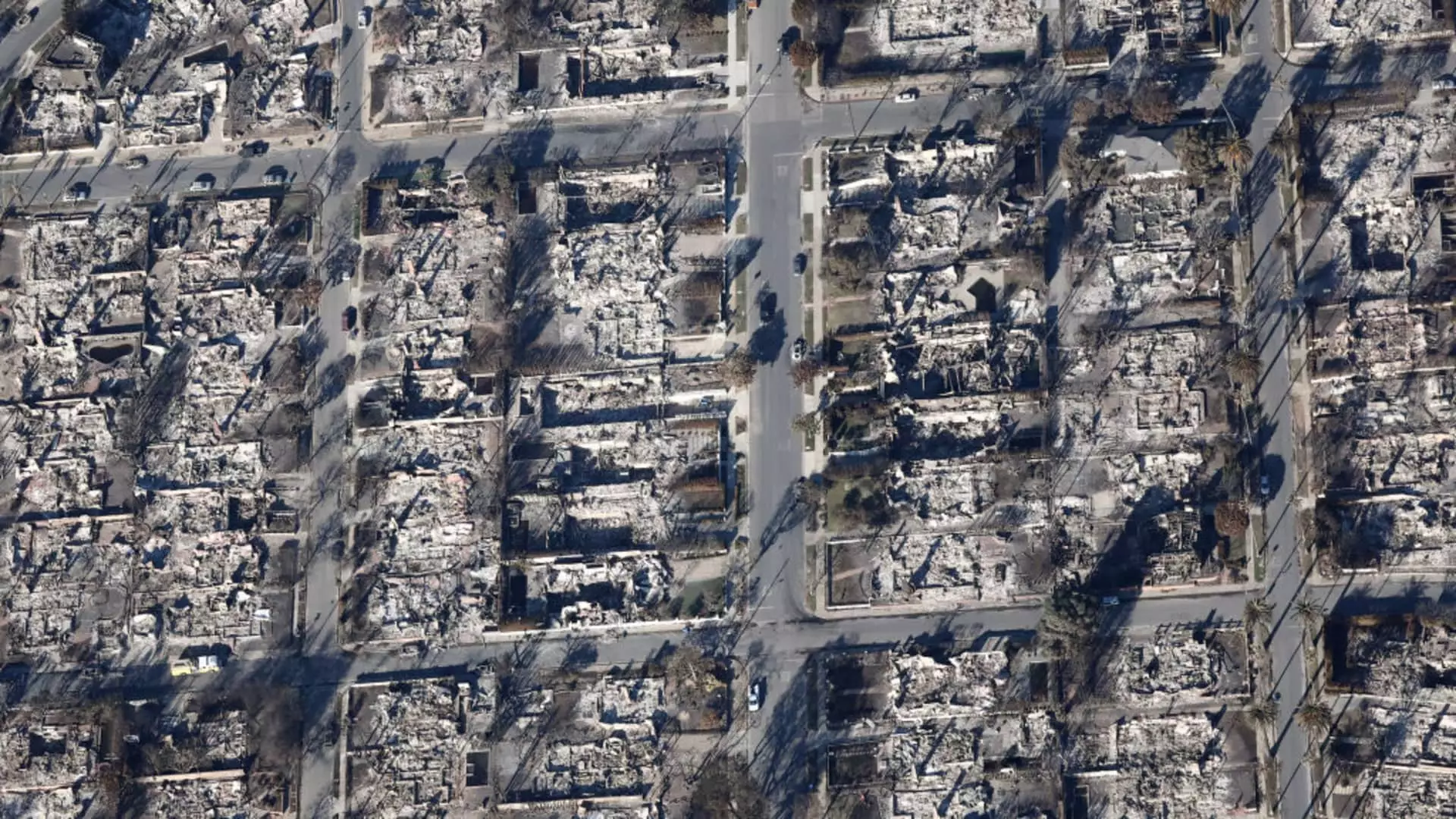The recent wildfires in California have not only left physical devastation in their wake but have also complicated the housing situation for countless families, particularly in Los Angeles. Among the affected residents is Joe Thompson, who, like many others, found himself searching for refuge after wildfires obliterated neighborhoods in Pacific Palisades. With the prospect of returning to his home uncertain, Thompson and his partner faced the unbearable reality of an inflated rental market exacerbated by their immediate need for housing.
The abrupt increase in rents is a disheartening pattern that often emerges following a natural disaster. Households affected by the wildfires are caught in a perfect storm of crisis; they must contend not only with the emotional and material upheaval caused by the fires but also with soaring housing costs that make finding a new home a near-impossible endeavor. These realities highlight a systemic issue within California’s housing market, which was already strained before the wildfires occurred.
In the wake of the destruction, Joe Thompson’s experience in the Santa Monica rental market reveals a troubling dynamic: property managers and homeowners are reportedly taking advantage of displaced families by dramatically increasing rent prices. The instance of requesting three months’ rent upfront illustrates the predatory behavior emerging in the market. Such actions reinforce the sentiment that some landlords prioritize profit over people, further complicating already tenuous living situations.
California law prohibits raising rent by more than ten percent during a state of emergency, yet many listings show prices that breach these regulations. This price gouging, as reported by local authorities and advocates, is particularly egregious in light of the collective devastation that the community faces. As Assemblymember Jacqui Irwin highlighted, it is not only morally reprehensible but also illegal to exploit the desperation of families seeking stable housing.
Research substantiates that when natural disasters strike, the burden often falls disproportionately on renters. Individuals who were in precarious financial situations pre-disaster are now tasked with finding affordable housing in a suddenly tight market, and many may be forced to make trade-offs that undermine their quality of life. Some families might be squeezed into smaller living spaces or become homeless altogether due to escalating prices.
Experts like Brock Harris point out an unavoidable truth: homeowners who have been insulated from the rental market for years are suddenly thrust into a climate rife with competition. The awareness of the shifting housing landscape underscores the pervasive feeling of uncertainty and anxiety shared among families like the Thompsons, who are grappling with the losses caused by the fires while desperately seeking a new place to call home.
Despite the overwhelming challenges, there are bright spots of generosity and resilience among the community. Organizations such as Airbnb.org, alongside local nonprofits, are stepping up to provide temporary shelter for those displaced. The collaborative efforts aimed at addressing immediate needs can help cushion the blow for affected families, even if they remain only temporary solutions.
However, the existing inequities persistently threaten to undermine these support efforts. Many individuals, such as Magdaleno Rosales from the Los Angeles Tenants Union, are raising alarms over potential evictions and the acceleration of homelessness within an already dire housing crisis. With reports of egregious rent hikes piling up, it is crucial for citizens and advocacy groups to keep a watchful eye on landlord behaviors that may take advantage of this tragedy.
While the devastation from the wildfires has laid bare the vulnerabilities in California’s housing market, it has also ignited movements for change. Conversations about affordable housing, tenant rights, and protective measures against exploitation are more pressing than ever. Though families like the Thompsons face immediate challenges, calling for accountability can be a first step towards addressing broader systemic issues inherent in the real estate sector.
As communities begin to reorganize and rebuild, it is essential that discussions continue not only about recovery but about the long-term viability of housing solutions that ensure every resident’s dignity and security. The trauma of the wildfires is immeasurable, but perhaps this crisis can serve as an impetus for greater change within the state’s housing policies, making way for a more equitable and sustainable future post-disaster.

